Implementing and Monitoring Nursing Care for Mental Health Conditions
VerifiedAdded on 2020/03/01
|5
|785
|19
Homework Assignment
AI Summary
This assignment solution addresses the implementation and monitoring of nursing care for consumers with mental health conditions. The solution includes two key questions. The first question focuses on how to communicate with the patient's wife about the prescribed PRN medication (Risperidone 0.5mg) and how to effectively communicate with the patient, emphasizing the importance of slow, clear communication and patience. The second question discusses the classification of Risperidone as an antipsychotic drug, its use in treating behavioral disturbances in dementia, and potential side effects like insomnia, dizziness, and fatigue. The solution also outlines the administration of Risperidone in tablet or liquid form and references relevant sources like Alzheimer's Australia and the Alzheimer's Society to support the information provided. The assignment emphasizes the importance of patient-centered care and understanding the challenges faced by individuals with dementia.
1 out of 5
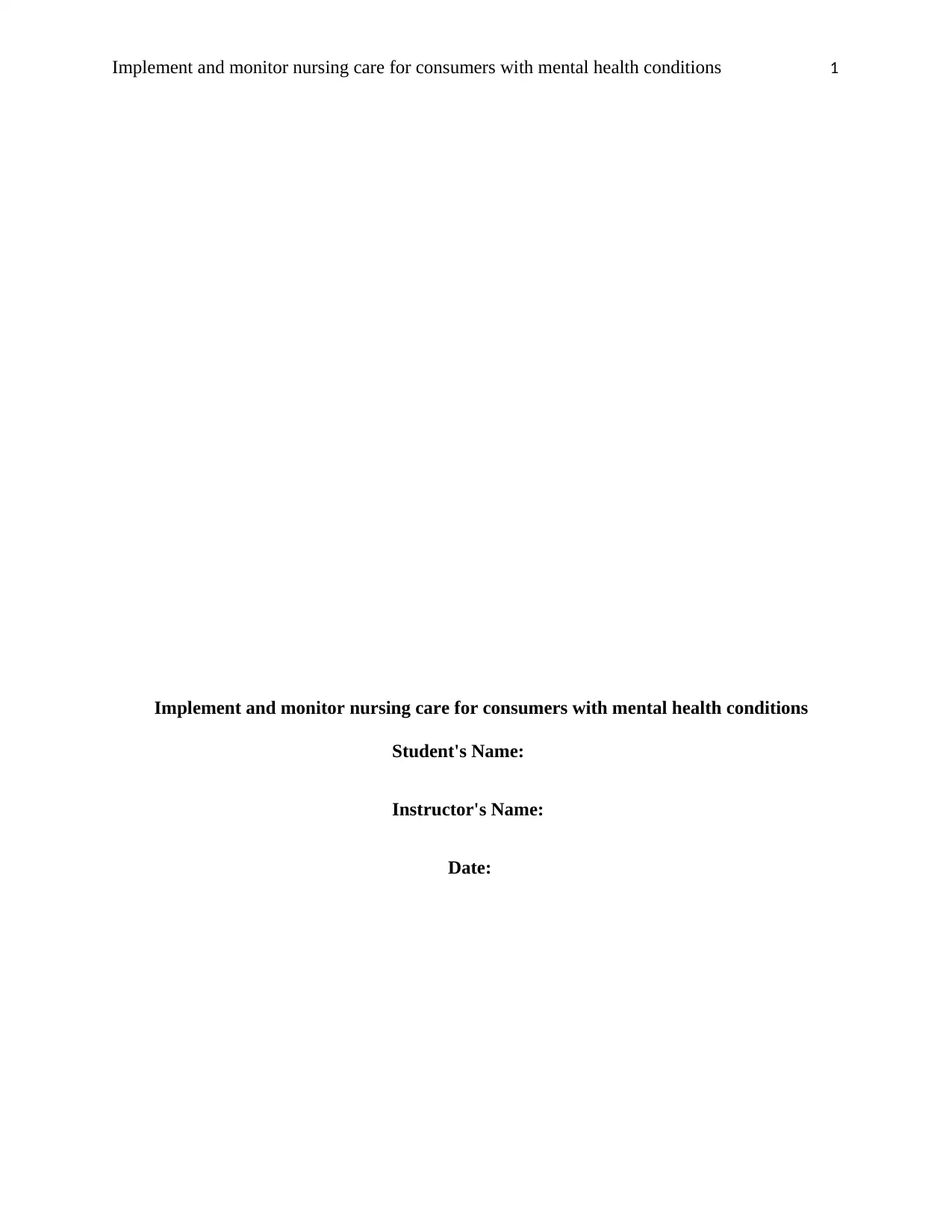
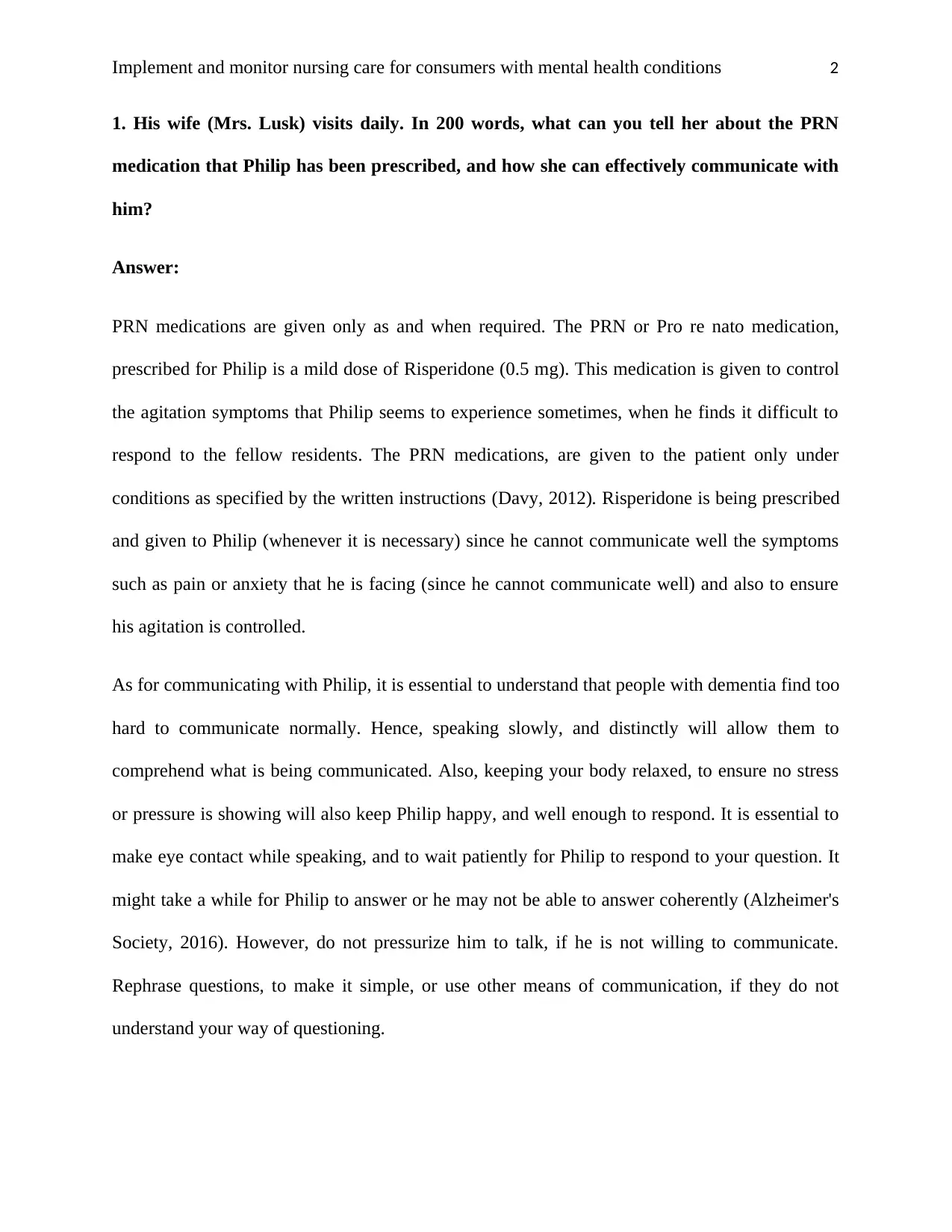
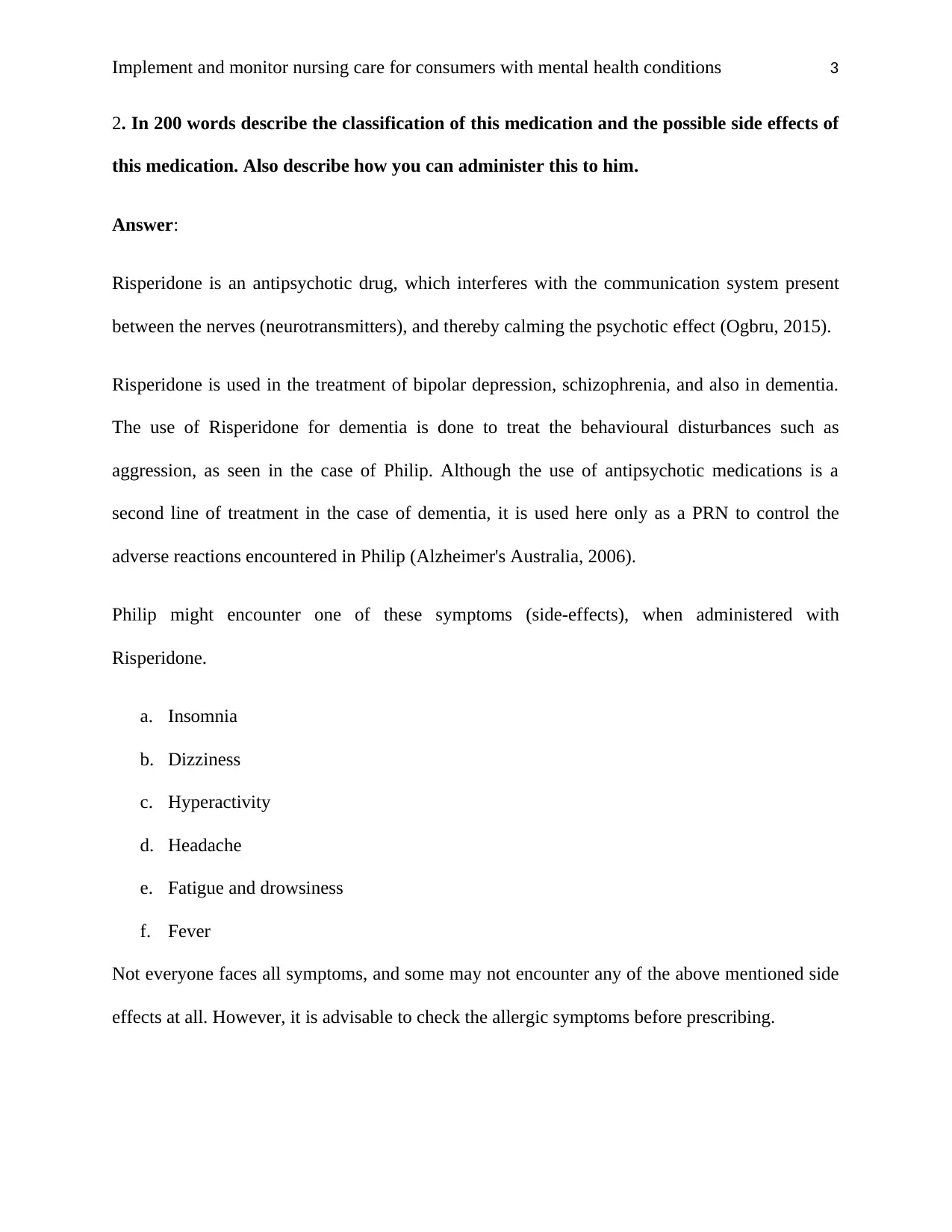

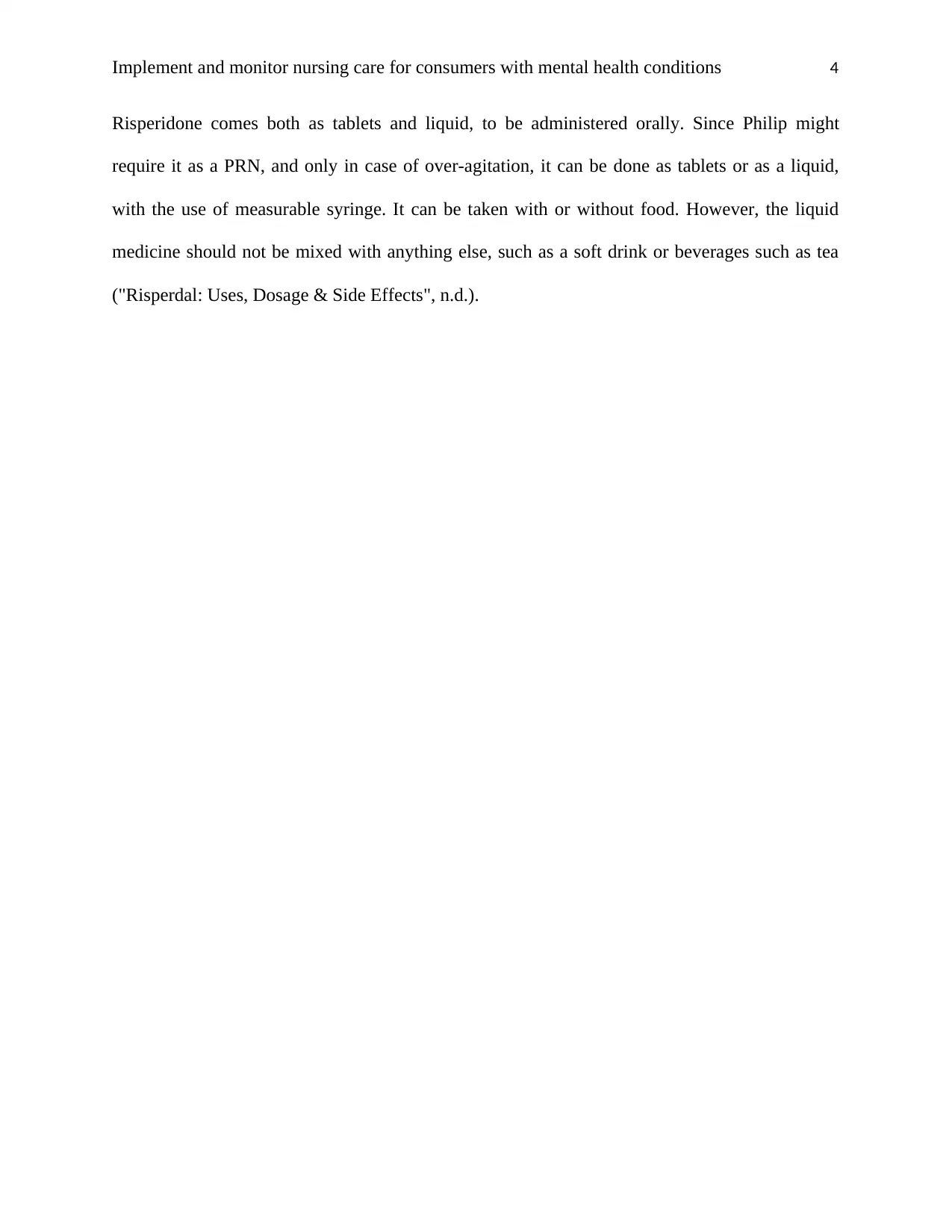
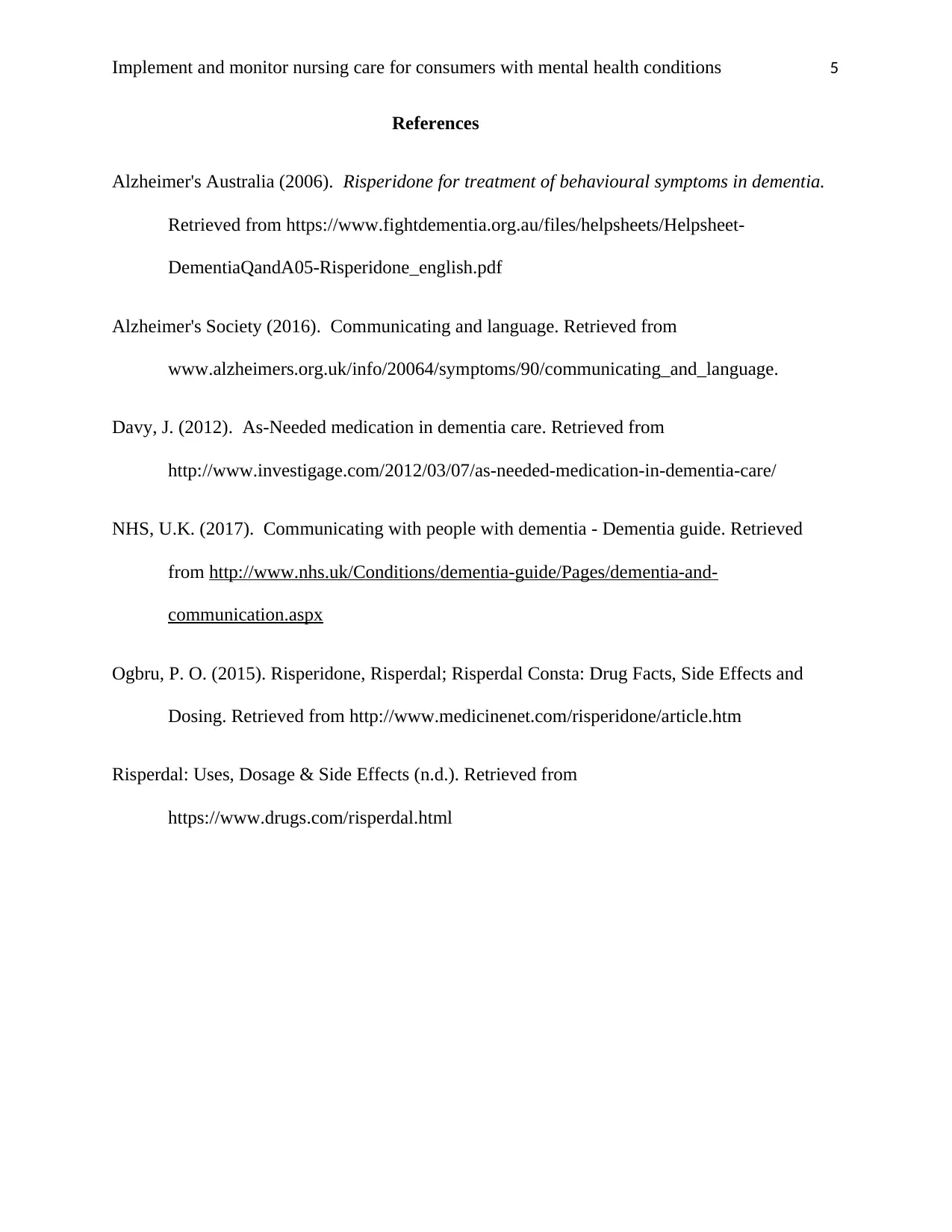

![[object Object]](/_next/static/media/star-bottom.7253800d.svg)